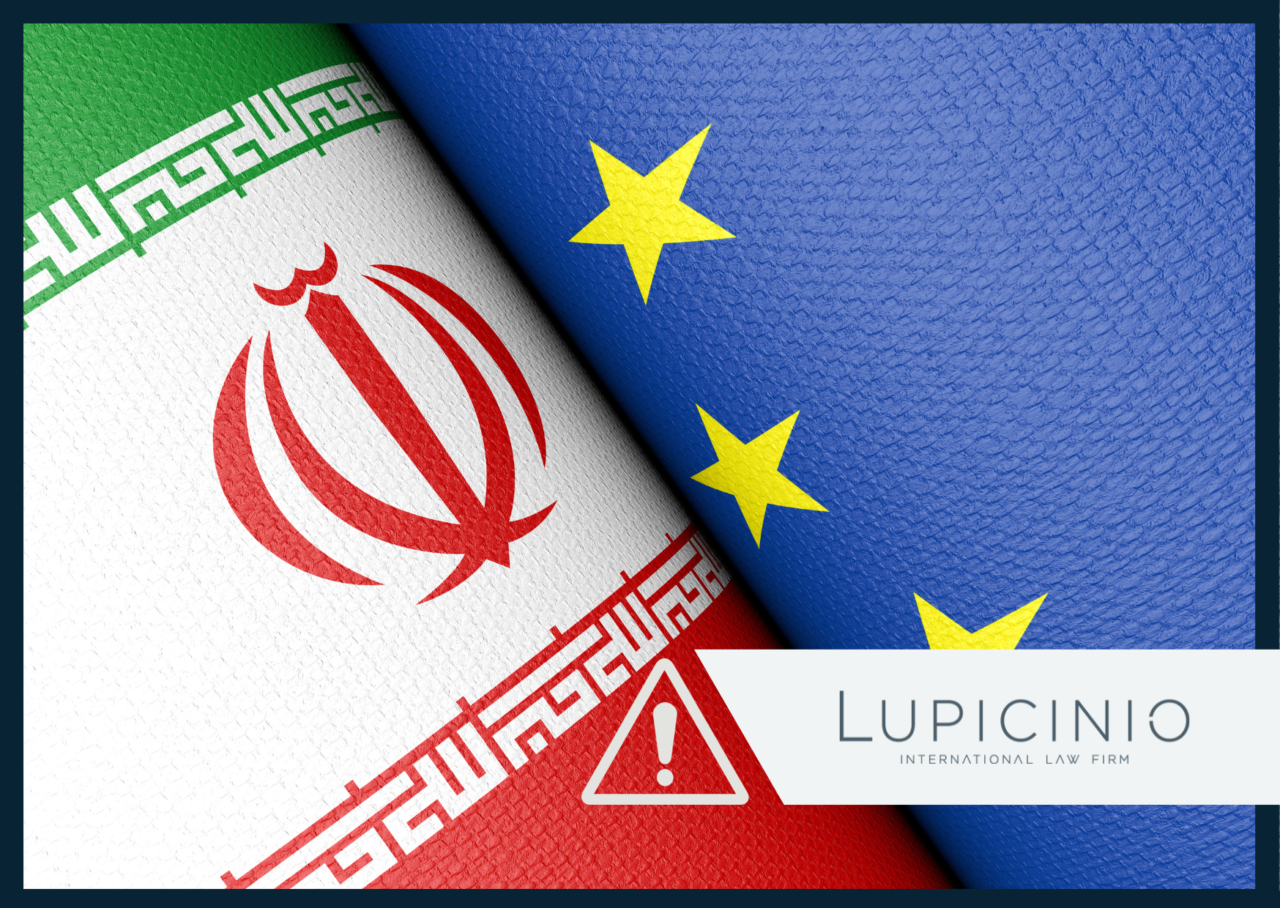The International Department of Lupicinio International Law Firm, shares article published in the Tehran Times portal, which informs us of a statement issued on October 18, 2023 by the Iranian Foreign Ministry in view of the expiration of some aspects of the United Nations Security Council Resolution 2231 (UNSCR 2231), including limits on the country’s ballistic missile technologies, eight years after the adoption of the Joint Comprehensive Plan of Action (JCPOA).
We recall that the JCPOA is an agreement reached in 2015 between Iran and its negotiating partners – the UK, China, France, Germany, Russia, and the U.S. – to impose restrictions on Iran’s nuclear program in exchange for the removal of sanctions. This agreement was endorsed by UN Security Council Resolution 2231.
Eight years after the adoption of the JCPOA (October 18, 2023, also known as Transition Day), all remaining nuclear-related sanctions against Iran will expire. These sanctions include restrictions on ballistic missile technologies, the proliferation of sensitive technologies, and the designation of individuals and entities associated with Iran’s nuclear and ballistic missile programs.
Following now, the statement released by the Iranian Foreign Ministry:
1. As of today, 18 October 2023, the last part of unjustly imposed restrictions by the United Nations Security Council on missile-related activities and its associated services and technology to/from Islamic Republic of Iran, including asset freeze and financial restrictions on certain Iranian individuals and entities, terminated unconditionally. According to the provisions of 2231 UNSCR, termination of these restrictions, does not require any resolution, statement or any other action in the context of the UNSC and occurred automatically.
2. According to UNSCR 2231, as of 18 October 2023:
2.1. In accordance with paragraph 3 of Annex B, Iran is no longer ‘called upon’ by the Security council ‘not to undertake any activity related to ballistic missiles designed to be capable of delivering nuclear weapons. It should be emphasized that Iran’s ballistic missile program has never been inconsistent with the provisions of this paragraph.
2.2. Provisions of the paragraph 4 of the Annex B to the resolution regarding restrictions on transfer of missile-related items, goods, services and technology to/from Iran, terminated.
2.3. Provisions of subparagraphs 6(c) and 6(d) of Annex B of the resolution regarding restrictions on activities and financial services of certain Iranian individuals and entities on 2231 list terminated automatically. The terminated restrictions include those on providing funds, financial assets and economic resources by nationals of UN Member States or any individuals and entities within their territories to individuals and entities on 2231 list.
3. It should be recalled that, according to paragraphs 5 of Annex B of the UNSCR 2231, as of 18 October 2020, all restrictions on arms related transfers to/from Islamic Republic of Iran and its associated services, had already terminated. Additionally, according to paragraph 6 (e) of Annex B to the resolution, as of 18 October 2020, all restrictions regarding entry into or transit through the territories of UN Member States on certain Iranian nationals, had already terminated automatically. Termination of these restrictions is reflected in Secretary General’s report S/2020/1177 dated 7 December 2020.
4. As of today, there will be no restrictions on transfer of missile-related items, services and technology to/from the Islamic Republic of Iran, and cooperation in all military and defense areas would be carried out, without any restriction, based on the needs and discretion of the Islamic Republic of Iran, within the framework of bilateral contracts with other countries.
5. According to paragraph 2 of UNSCR 2231, the Council calls upon all Member States to support the implementation of the JCPOA as an Annex to the resolution, and refrain from any action that undermine implementation of the JCPOA. In this regard, the Islamic Republic of Iran, by recalling the provisions of UN charter, in particular article 25 as well as provisions of UNSCR 2231, emphasizes on the commitments of all Member States to effectuate the termination of the above-mentioned restrictions at the national level. Iran expects all States to modify and revise, in the case of existence, any relevant restriction or sanction, according to their domestic legal system.
6. It should be underlined that any measure, at national or regional level, aiming at imposing sanctions or restrictions on defensive engagements and cooperation of the Islamic Republic of Iran, is in contradiction with the termination of restrictions of UNSCR 2231, in particular paragraphs 1 and 2 and the timetable foreseen therein, and violates the resolution substantively. The Islamic Republic of Iran reserves its right to take appropriate measures to secure its national interests.
7. The defense doctrine of the Islamic Republic of Iran has always been on the basis of domestic capabilities and capacities, and deeply rooted in resistance and power of Iranian Nation. Unconventional arms and weapons of mass destruction has no place in defense doctrine of the Islamic Republic of Iran. Moreover, the Islamic Republic of Iran will continue to take necessary measures to strengthen its defense capabilities in order to protect its sovereignty, independence and territorial integrity against any aggression and to counter the menace of terrorism in the region. In this context, Iranian military capabilities, including ballistic missiles, are exclusively for self-defense.
8. The Ministry of Foreign Affairs of the Islamic of Republic of Iran recalls and emphasizes on the provisions of S/2015/550 dated 20 July 2015, registered following the adoption of UNSCR 2231. The Islamic Republic of Iran continues to insist that all sanctions and restrictive measures introduced and applied against Iran, including those imposed under the pretext of its nuclear program, have been baseless, unjust and unlawful.
Tehran Times adds:
Iran adamant to boost missile capabilities
The Iranian Ministry of Defense also issued a statement on Wednesday saying Iran is seeking to expand its missile and weapons capabilities in accordance with the demands of its national security strategy.
The ministry announced that as Iran has proved before, it considers this period as an opportunity to prove its authority and legitimacy plus strengthen its defense capabilities, even if some countries are not willing to implement their commitments under UN Security Council Resolution 2231 following their contradictory behaviors.
It stated that enhancing Iran’s missile capabilities also aims to satisfy justifiable defense needs and provide the foundation for implementing “self-defense” in line with UN Charter Article 51.
Iran pointed out that it considers the accusations of Iran’s involvement in the war in Ukraine to be unfounded and biased. It further stated that the U.S. and certain other European nations, along with the North Atlantic Treaty Organization (NATO), are primarily to blame for the conflict’s origins.
The ministry anticipates that certain NATO members will cease their support for extremism, terrorism, and secessionism that causes further harm to Iran and the other countries in the region, and that NATO will draw lessons from its past failures, particularly in Iraq, Syria, and Afghanistan.
Now that all of the arms restrictions outlined in resolution 2231 have been lifted, the ministry will carry out plans to support the lawful arms trade, meet the needs of the country’s security, and participate more actively in international affairs than the past.
“UN removes all restrictions on Iran ballistic missile program”
Iran’s Deputy Foreign Minister for Political Affairs Ali Bagheri Kani has said that all restrictions imposed on the Iranian individuals and entities mentioned in the UNSC 2231 resolution will be terminated and the list will be removed from the United Nations website as of today (October 18).
Bagheri Kani posted on his X account on Wednesday that as of October 18, Iran will no longer be subject to any restrictions within the framework of the UN Security Council, as per UN Security Council Resolution 2231. This means that all unfair restrictions on activities and transfers related to ballistic missiles to/from the Islamic Republic of Iran will end.
He said, “On the basis of UNSCR 2231, all restrictive measures and sanctions imposed against Iran at the national or regional level should be lifted.”
Maintaining such limits or applying further sanctions within this framework is a blatant breach of the text and spirit of UN Security Council Resolution 2231.
******
More information:
Lupicinio International Law Firm
C/ Villanueva 29
28001 Madrid
P: +34 91 436 00 90
info@lupicinio.com






